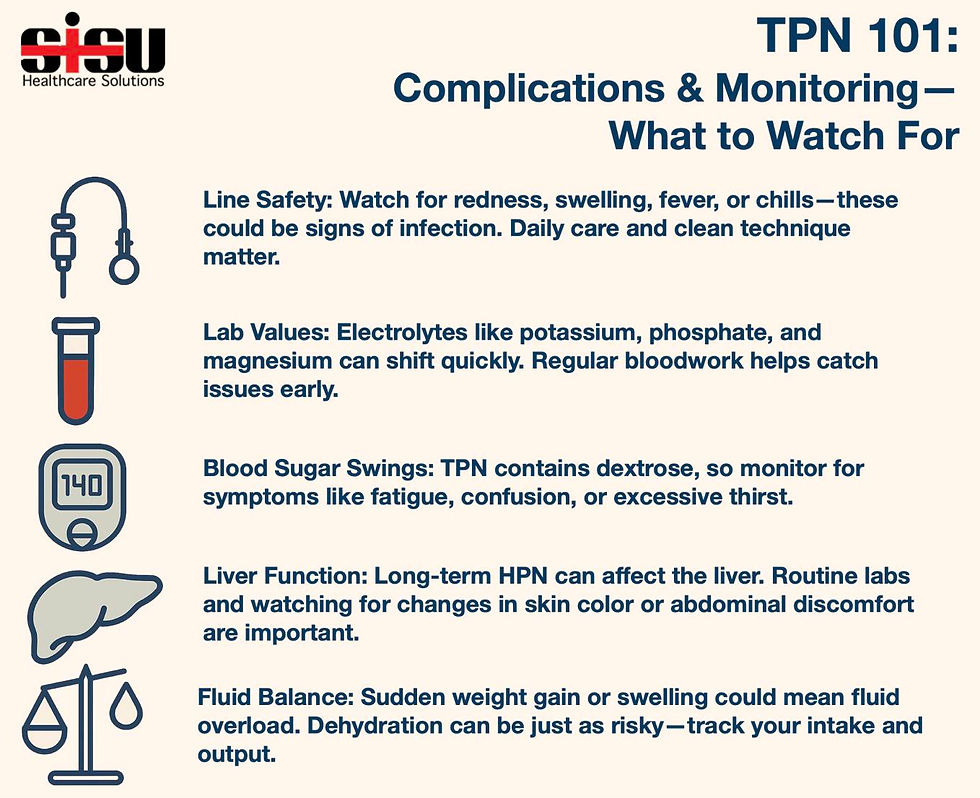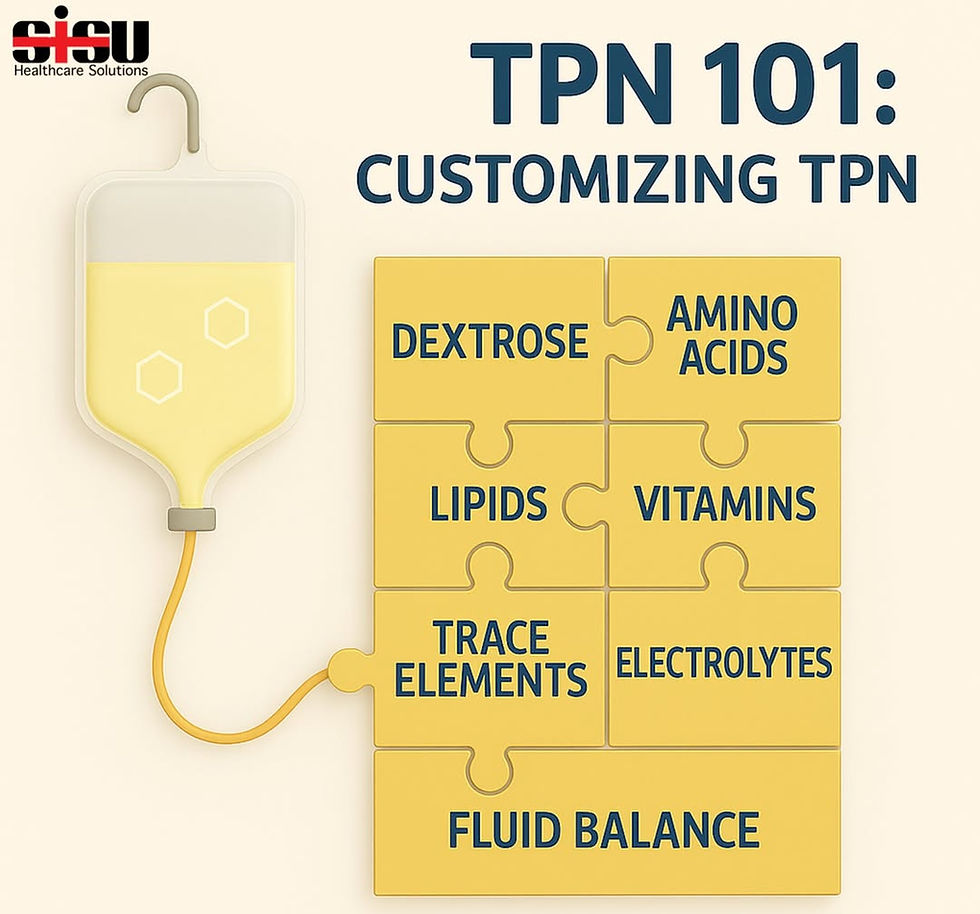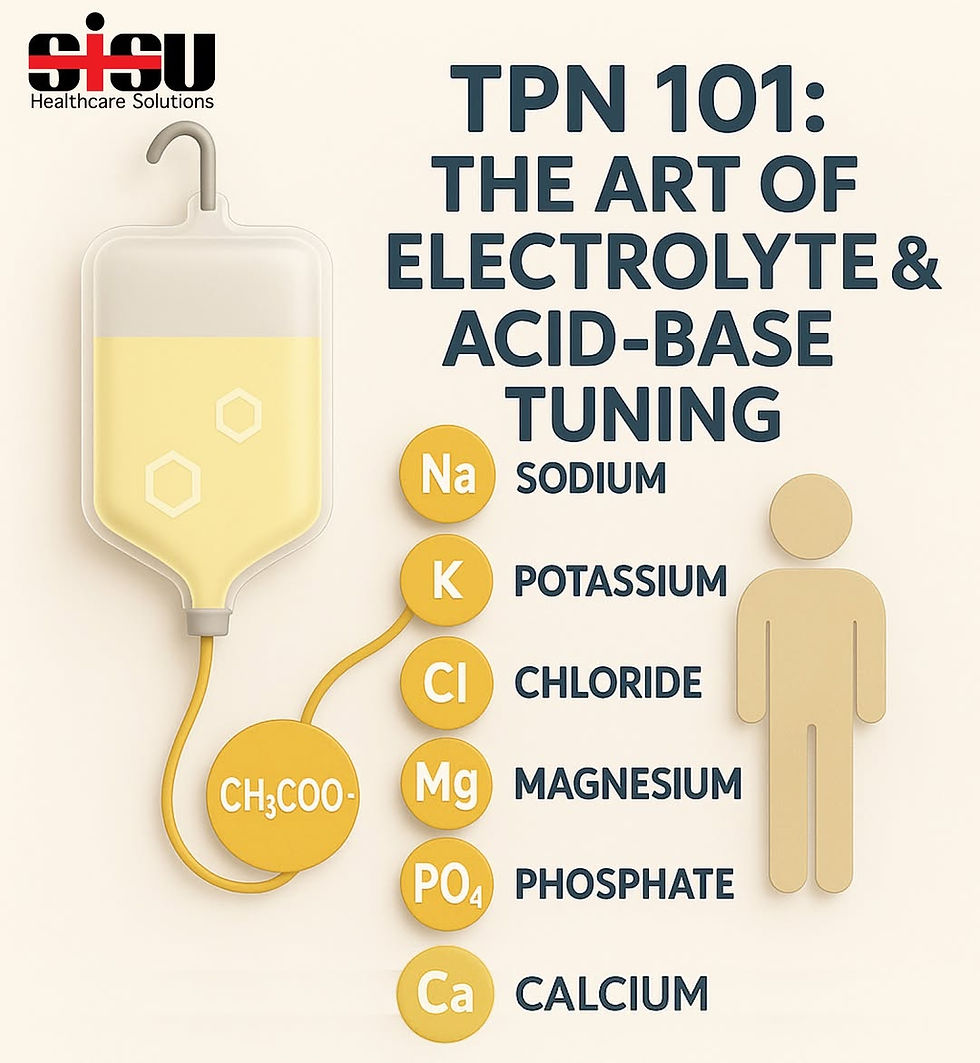Total Parenteral Nutrition (TPN)
- CKHendry
- Jul 7, 2023
- 2 min read
Total Parenteral Nutrition (TPN) is a complex nutrition therapy designed to support the daily
nutritional needs of some of the most fragile patients. Research has shown that patients that are well nourished respond better to medical intervention and treatment.
Total Parenteral Nutrition (TPN), also known as intravenous nutrition or hyperalimentation, is a method of delivering all essential nutrients directly into the bloodstream bypassing the digestive system. It is used when a person's gastrointestinal tract cannot adequately absorb or process nutrients from oral or enteral (tube feeding) sources.
TPN provides a balanced mixture of carbohydrates, proteins, fats, vitamins, minerals, and trace elements to meet the individual's nutritional needs. The solution is prepared by a pharmacist or a specialized nutrition team and is administered through a central venous catheter, typically placed in a large vein near the heart.
TPN is primarily used for individuals who have severe gastrointestinal disorders. TPN is also used to treat:
• Malnutrition
• Short Bowel Syndrome
• Acute Crohn’s Disease or Ulcerative Colitis
• Radiation Enteritis
• Intractable Nausea and Vomiting
• Hyperemesis Gravidarum
• Certain pediatric disorders – congenital abnormalities, prolonged diarrhea
• Malabsorption
• Nutritional deficiencies
• Pancreatitis
• Fistulas
The composition of TPN is tailored to the individual's specific needs, taking into account factors like age, weight, metabolic rate, and medical condition. The infusion rate and duration of TPN may vary based on the patient's requirements and response.
Careful monitoring is crucial during TPN administration, including regular assessment of blood glucose levels, electrolyte levels, liver function, kidney function, and other relevant parameters. Adjustments to the TPN formulation are made based on these measurements and the patient's clinical condition.
Although TPN can be a life-saving intervention, it is associated with certain risks and complications. These may include infection at the catheter site, bloodstream infections (sepsis), liver dysfunction, metabolic abnormalities, and electrolyte imbalances. Close supervision and regular follow-up with healthcare professionals are essential to ensure the safe and effective use of TPN.
As a leader in infusion therapy and nutrition services, we understand the commitment and care coordination that is required to achieve the best possible outcomes patients receiving at-home TPN therapy. Patients deserve a company that is committed to excellence in care and patient safety.
Patient Care
• EASY - Easy to start and maintain with our experienced, compassionate staff offering hospital and in home set-ups, as well as pre-discharge hospital teaching as needed
• COMFORT - First dose administration in the patient’s home or in one of our Ambulatory Infusion Suites (AIS)
• CONFIDENCE – State of the art equipment to foster independence at home and
comprehensive patient and caregiver disease and therapy education
• SUPPORT - Complete coordination of care and nutrition consults for assessment and
evaluation as needed
• QUALIFICATION – Our reimbursement specialists will coordinate all insurance authorizations, and reimbursement services.
Clinical Expertise
• SUPPORT - Our expert nutrition support team consists of board certified pharmacists and nurses all available 24/7/365 for clinical intervention and assistance
• MONITORING - On-going monitoring and therapeutic recommendations made based on laboratory assays and patient response.
• EXCELLENCE - CDC and INS approved central line protocols for prevention and
reduction of CLABSI (line sepsis).




Comments